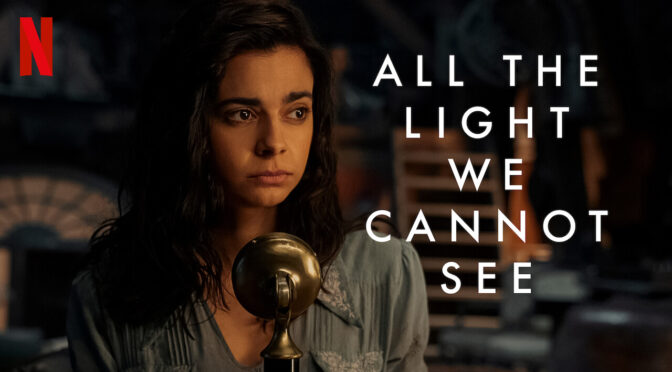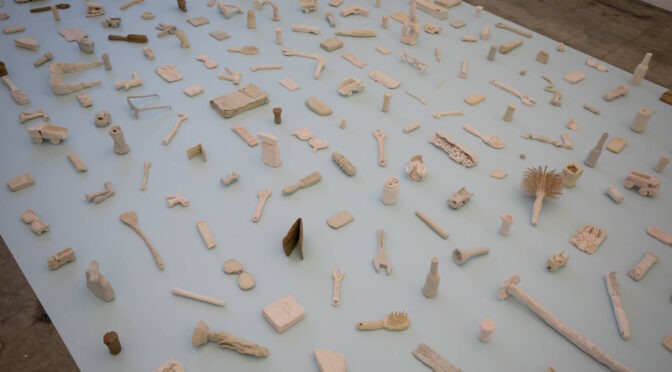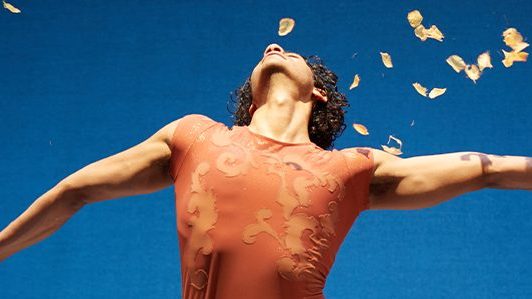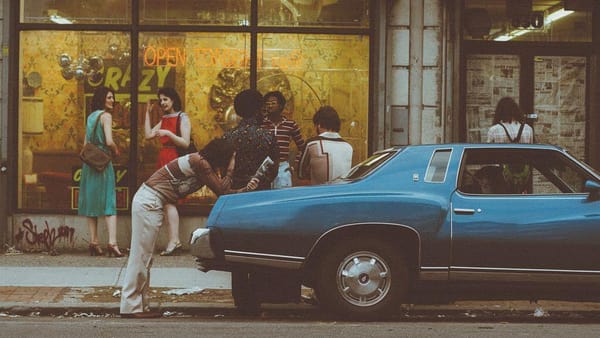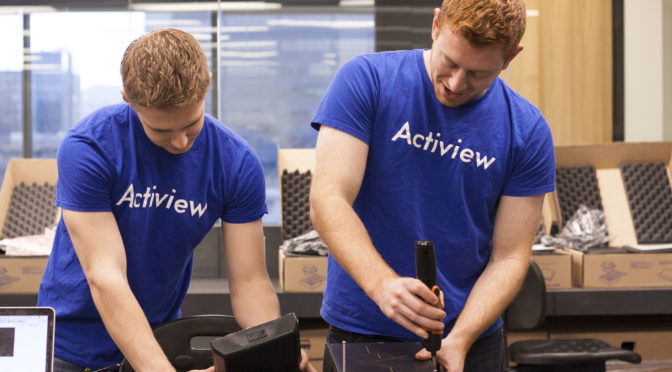FOR IMMEDIATE RELEASE:
San Francisco, CA – April 28, 2017 – AMC Theaters (AMC) has reached an agreement with several blind individuals, the California Council of the Blind (CCB), and the LightHouse for the Blind and Visually Impaired in San Francisco (LightHouse) to ensure blind customers have reliable access to audio description services at AMC movie theaters nationwide.
Audio description is a verbal description of the visual events on screen, which plays between pauses in dialogue. Many movies come with audio description tracks, and customers who are blind or visually impaired can listen to audio description through special headsets that are available at the theatres. With audio description, people who are blind and visually-impaired can fully enjoy the important and beloved American pastime of going to the movies.
Under the agreement, AMC will require the managers and staff who are responsible for programming and handing out audio description equipment to be trained on the equipment. AMC and the plaintiffs in the case have developed staff and customer information guides to facilitate better service. AMC also will require managers to check the equipment regularly. Additionally, AMC will now offer audio description immediately before the feature movie begins, so customers can test the equipment before the feature movie begins to help ensure customers don’t miss any of the movie troubleshooting problems. In the rare event that a theater’s audio description equipment is out of service, AMC will now update theater websites to remove the audio description designation from showtimes. AMC has agreed to implement these changes in theaters nationwide.
This agreement resolves a lawsuit brought by CCB, the LightHouse, and several individuals, represented by Disability Rights Advocates and Rosen Bien Galvan & Grunfeld LLP, in 2016, alleging that audio description equipment at AMC theaters frequently malfunctioned and that AMC staff did not properly check, program, or distribute the equipment to customers. AMC has provided audio description equipment to customers for years, but some blind individuals have had difficulty accessing the service because of equipment and customer service issues.
AMC Theatres and the Plaintiffs look forward to improved access to audio description services for blind and visually-impaired persons across the country.
Plaintiff Scott Blanks commented, “This settlement marks an important step toward improving access to the movies for people who are blind or have a vision impairment. I’m looking forward to going to AMC theaters and enjoying the movies with my family when AMC makes the changes to improve reliability of audio description in its theaters.”
Cynthia Pierce, AMC Senior Vice President for Facilities, Sight and Sound for AMC commented, “AMC is pleased to have worked with these organizations and individuals to develop solutions that will help bring the joy of movies to the blind community.”
California Council of the Blind President Judy Wilkinson stated, “The California Council of the Blind applauds AMC for working with us to enhance access to the movie-going experience for people who are blind. Movies are a central pillar of modern society, and ensuring that the blind community receives access to this content is critical to ensure that people who are blind are fully integrated into society.”
Bryan Bashin, Executive Director/CEO of the LightHouse states, “Access to reliable audio description is essential to ensure that blind movie-goers are able to enjoy movies in the same way that their sighted friends and family members do. Dependable audio description levels the playing field for the blind community. The LightHouse is pleased with AMC’s commitment to providing this service to blind movie-goers. We look forward to working with AMC to ensure that all blind movie-goers have a seamless experience when utilizing audio description.
Plaintiffs’ counsel Rebecca Williford of Disability Rights Advocates (DRA) explains, “We are pleased that AMC is committed to improving audio description services in its theaters. Audio description should be as reliable as any other service or technology at an AMC theater, such as a sound system or popcorn machine.”
Ernest Galvan of Rosen Bien Galvan & Grunfeld, counsel for Plaintiffs, said “when effectively implemented, technology like audio description has the power to further integrate people with disabilities into their communities. By improving access to audio description services, this agreement harnesses that potential.”
Press Contacts
Scott Blanks
Senior Director, Programs
Lighthouse for the Blind and Visually Impaired
sblanks@old.lighthouse-sf.org
Rebecca Williford, Disability Rights Advocates
(510) 665-8644
rwilliford@dralegal.org
Michael Nunez, Rosen Bien Galvan & Grunfeld LLP
(415) 433-6830
mnunez@rbgg.com
About the California Council of the Blind
California Council of the blind (CCB) is a non-profit membership organization composed of Californians who are blind or have low vision. CCB’s mission is to gain full independence and equality of opportunity for all blind and visually impaired Californians. To read more about CCB visit: http://www.ccbnet.org/.
About the LightHouse for the Blind and Visually Impaired
The LightHouse for the Blind and Visually Impaired (the LightHouse), a San Francisco-based non-profit corporation, is California’s oldest organization serving the blind and visually impaired community. Through training, mentorship and recreation, the LightHouse is dedicated to aiding blind and visually impaired individuals in leading productive, enriching, and independent lives. For more information visit old.lighthouse-sf.org.
About Disability Rights Advocates
Disability Rights Advocates is one of the leading non-profit disability rights legal centers in the nation. With offices in Berkeley and New York City, DRA’s mission is to advance equal rights and opportunities for people with all types of disabilities nationwide. DRA has successfully negotiated access improvements to many contemporary technologies, including Redbox’s self-service video rental kiosks, Scribd’s digital library, the Uber ridesharing platform, and Netflix’s video streaming and disc rental. For more information, visit www.dralegal.org.
About Rosen Bien Galvan & Grunfeld LLP
Rosen Bien Galvan & Grunfeld LLP is a private law firm that specializes in complex litigation, including with respect to business disputes, employment matters, institutional reform, and civil rights. For more information, visit www.rbgg.com/.
###########
